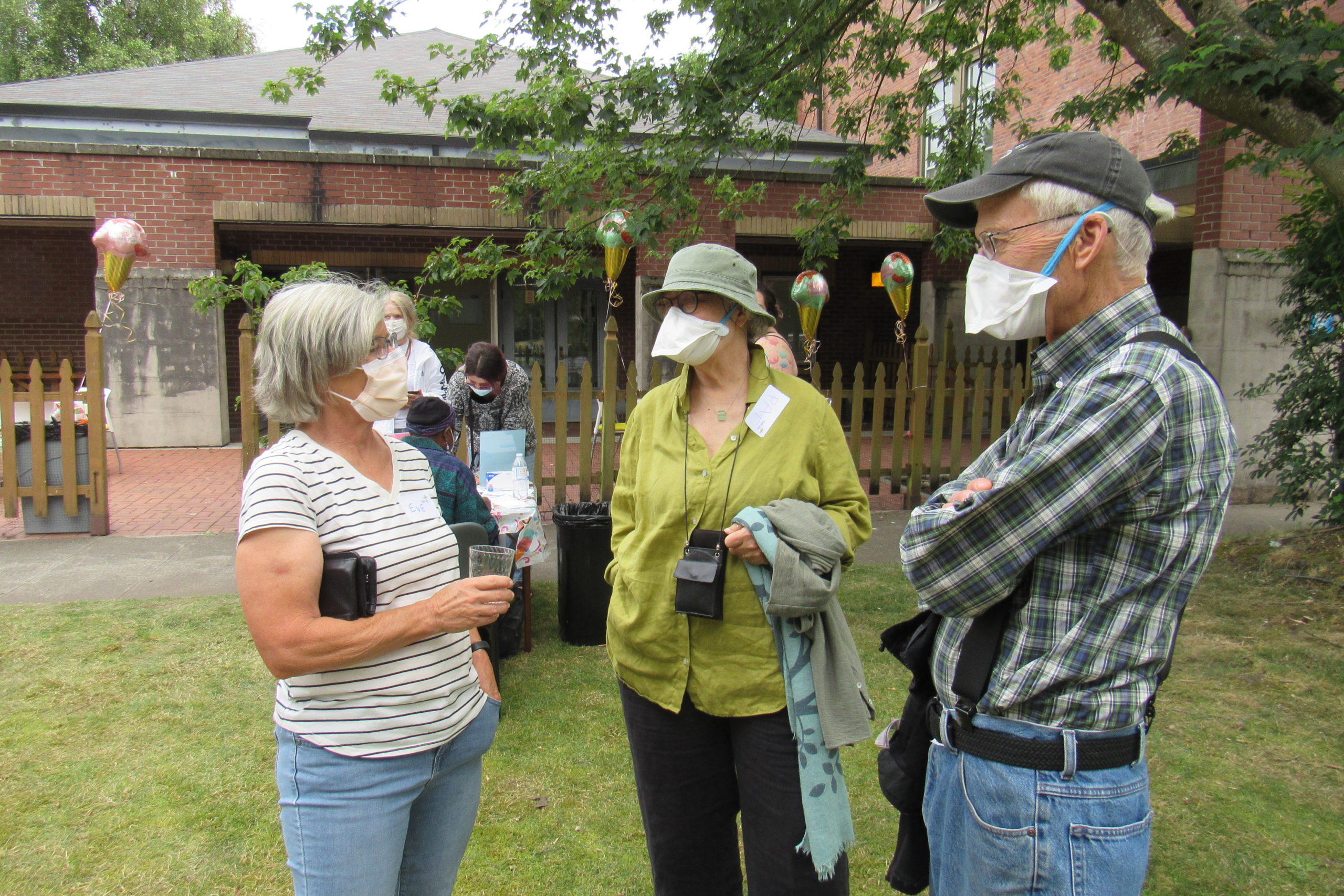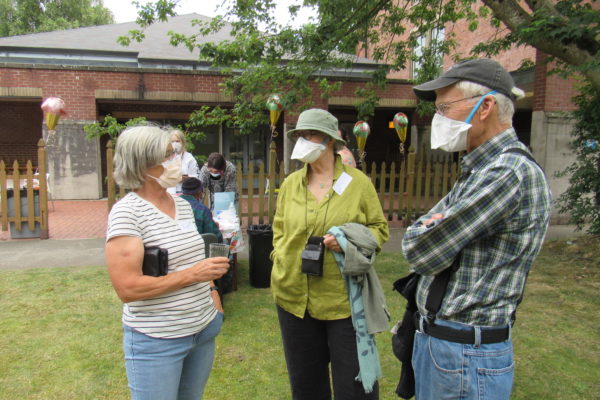A helping hand for helping hands

July 19, 2022
Caregivers Thrive with Full Life Volunteer Care Teams

Care Teams participants Pat and Ken (center and right) visit with Care Teams volunteer Eve during a recent social gathering for Care Teams participants.
Late last year, Full Life Care embarked on a vision to support unpaid family caregivers to receive much needed non-medical respite. Funded by the King County Veterans, Seniors and Human Services Levy, this program — Care Teams for Caregiver Respite — was realized earlier this year as the first enthusiastic volunteers were prepared to support a caregiver in their area of town.
Caregivers are caring for seniors (55+) or veterans of any age and their families. Care Team volunteers are people from all walks of life: college students, working professionals, retirees — all seeking a meaningful opportunity to be of service. Full Life’s mission was to bring the two together to help ease the challenge of full-time caregiving responsibilities, as well as relieve social isolation — a common side effect of caregiving, amplified by the pandemic.
Twelve eager volunteers completed the first training, resulting in three inaugural Care Teams. For some it was a tentative beginning as caregivers became accustomed to mingling with newcomers. But persistence, time and the natural deepening of connection developed into beneficial experiences for all.
As one caregiver put it: “This program has been a godsend to me.” Her Care Team of three has provided care companionship for her husband while she has been able to visit with friends that she hasn’t seen since before the pandemic.
“I truly am grateful for our team,” she said. “Their kindness and their readiness to provide meaningful interaction with my husband has been greatly beneficial to me not feeling isolated and alone.”
The Care Teams have also reported a genuine satisfaction by contributing their time in various ways: working in the yard, collaborating on a home organizing project and providing care companionship to the care recipient.
Suzanne, an avid gardener who shared weed pulling duties with a care recipient said, “One single hour of my time hanging out with the care recipient allowed the caregiver to focus on some paperwork which she needed to do.”
And the benefit of working on a team is that the volunteer commitment is shared. One team member said it best: “Our team works well together because we all have different schedules which benefits the caregiver and the care recipient. We are able to support their needs most of the time when they need it.”
Studies show that family caregivers take on an average of 23 hours of caregiving each week, often in addition to work which can lead to increased stress, isolation. Director of Volunteer Programs, Ginger Seybold said, “This is an exciting opportunity to facilitate community-based support on a hyper-local level to address caregiver burnout with added social and practical support. We appreciate the volunteers and caregivers who stepped up to help us test this new model and we are excited to see the benefits multiply as we expand our volunteer base to reach even more caregivers.”
If participating on a volunteer Care Team sounds interesting to you, we invite you to contact us. If you’re concerned about needing specific experience, Chanel, a current Care Team volunteers offers assurance.
“I thought I might have to do a little more research and prepare myself a little bit more about how to interact with the care recipient,” Chanel said. “But [after meeting him] it seems like it’ll be an easy and fun time going there.”
We also encourage Caregivers who would like a supportive Care Team to connect for more detailed information.
A caregiver enjoying much needed respite encouraged by a supportive Care Team said, “This week your team allowed me to see people I had not seen since before the pandemic. All of the team is warm, friendly and compassionate.”
![]()
